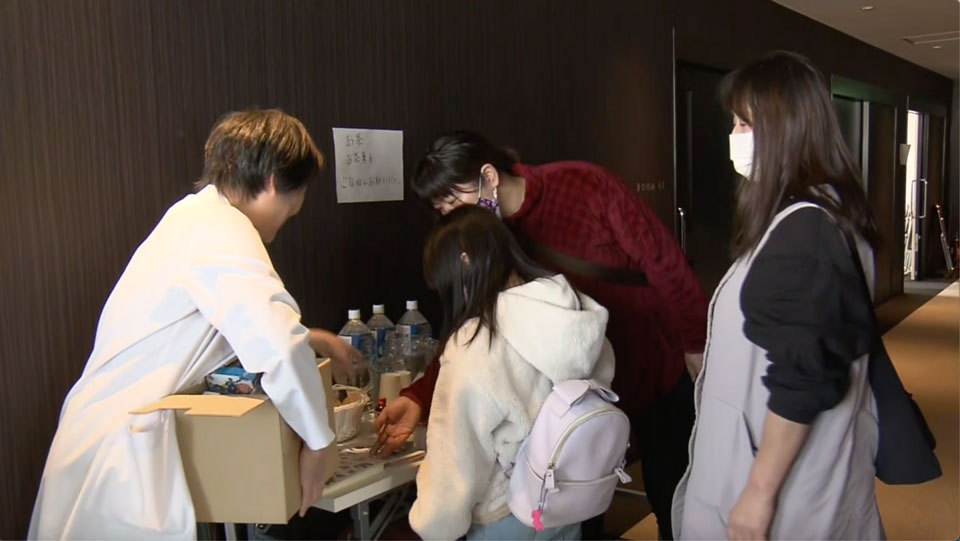Women's clinic opens its doors
The Negami Mirai Clinic in Nanao City, Ishikawa Prefecture, specializes in outpatient care for women. It has opened its doors to women and children affected by the disaster and allocated a space for them to socialize.
The service is available on the first and fourth Thursdays of the month and every Sunday.

On January 25, about 10 people gathered to relax over a cup of tea and share their worries and concerns about their shared circumstances, including how to get by without running water.

Free sanitary products, diapers
The clinic distributes free sanitary products, diapers, supplements, and other items. Visitors take what they need. They can also seek advice from clinic director Dr. Negami Masako.
A woman in her 60s who has decided to stay put at home despite having no water supply says: "Just talking to the doctor makes me feel relieved. I have to travel a long distance to do laundry and take baths, and my living expenses are getting tight, so this kind of support is a great help."

"I think it is good that we can ask them how they are doing not only regarding illnesses, but also enjoy casual conversation," says Dr. Negami. "If you are stressed and tired, please come and see us."

Visiting evacuation centers
Dr. Negami has also been visiting evacuation centers in Nanao City to check living conditions. She speaks to women and children about their health and living concerns, encouraging them to share even the slightest problems.
She says many evacuees have told her that they cannot sleep well and are struggling with poor sanitary conditions.
